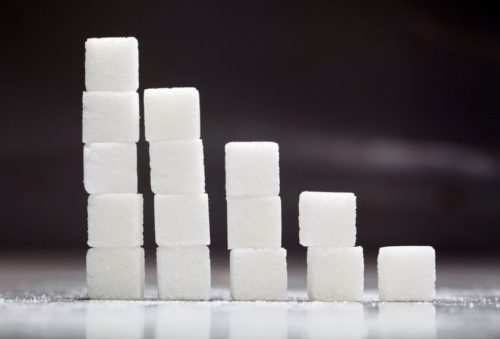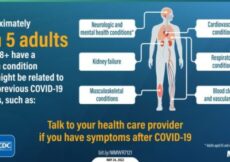January 26th, 2022
In 2020, The PediaBlog reviewed new nutritional guidelines from the American Heart Association and U.S. government agencies intended to help parents improve their children’s dietary health. In addition to replacing saturated fat (mostly from animal protein) with healthier unsaturated fat to reduce the risk of heart disease, the recommendations targeted sugar in the typical American diet:
Reduce added sugars to lessen unhealthy weight gain and the consequences of obesity-related health outcomes. Five food categories contribute nearly 70% of added sugar intake:
• Sugar-sweetened beverages (SSB)
• Desserts and sweet snacks
• Coffee and tea (with their additions of sugar and flavorings)
• Candy
• Breakfast cereals and breakfast bars
Lisa Bodnar explains what “added sugars”really are…
Added sugars are sugars and syrups that are added to foods during processing or preparation or later at the table. They can be natural sugars, like honey, or artificial sweeteners, like high-fructose corn syrup. Yogurt, baby snacks, fruit drinks, desserts and sweet bakery products are the most common sources of added sugars in the diets of infants and toddlers.
Unlike sugars that naturally occur in fruits, dairy products, vegetables and bread and other grains, natural sugars and artificial sweeteners added to foods are the ones we should eliminate or limit in the diets of young children.
… and why it is so important for parents to limit them from the beginning of life to ensure healthy nutrition in their kids:
Children who are fed diets high in added sugars are more likely than children with lower sugar intakes to have a number of negative health consequences as they develop, including childhood obesity, cardiovascular disease and tooth decay.
85% of infants and toddlers living in the U.S. consume added sugars in their food and beverages, says Bodnar, professor of epidemiology at the University of Pittsburgh Graduate School of Public Health. She believes parents can use the following tips to reduce or eliminate them:
1. Look on the food label
Labels include the amount of “Total Sugars” and, below that, the amount of “Added Sugars.” One 8-ounce serving of chocolate milk contains 15 grams of added sugar, for example, while regular cow’s milk has no added sugar.
2. Switch to healthier drinks
Swap out sugary drinks with water or milk (breast milk, formula or other milk, depending on the child’s age). Eliminate or limit sugary beverages like regular soda, flavored milks, Kool-Aid, fruit drinks, juice with less than 100% fruit, sports drinks, energy drinks and sweetened water or tea.
3. Ditch sugar during food prep
Prepare foods for your young child at home without adding sugar.
4. Be aware of the different names for sugar
Added sugars go by many different names, such as high-fructose corn syrup, fruit juice concentrates, cane sugar, corn sweetener, lactose, glucose, sucrose and maple syrup. So always check the ingredient list.
5. Be mindful of sugar lurking in packaged or store-made food
If you offer your child packaged or store-prepared foods and beverages, such as dry cereal, fruit pouches or jars of baby food, they should contain little to no added sugars.
6. Try again and often
Offer children bitter foods like vegetables over and over. Young children need to be exposed to foods 30 or so times before they learn to like them!
Reducing added sugars in our daily dietary routine isn’t always easy. Being aware of what it is we are putting in our kids’ mouths should be the starting point for improvement of their health and well-being.




































